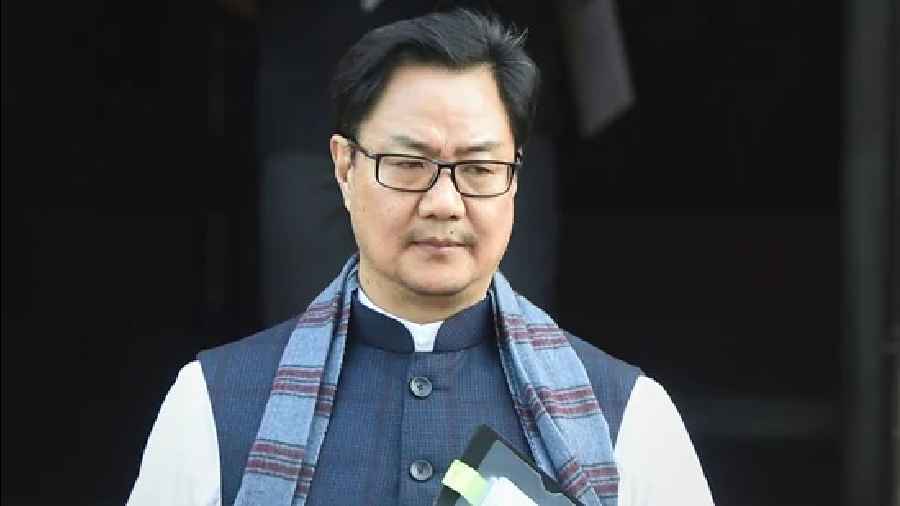When the object of attack refuses to budge, jibes rise in pitch. This appears to be true of the Union law minister, Kiren Rijiju, whose expressions of disrespect towards the judiciary are growing more pointed. That is his territory: who better to castigate, ceaselessly, the collegium system of judges’ appointments that his party cannot brook? Last week, he accused a few retired judges — not by name — of being part of the “anti-India gang”. They are, Mr Rijiju alleged, trying to turn the judiciary into the Opposition. Impropriety of this kind is rare. The law minister made the usual Narendra Modi-led leap from government to nation: criticism of the government was equal to being anti-India. Calling retired judges part of a ‘gang’ established which side the law was on: ‘agencies’ would penalise everyone engaged in these activities. Did he mean the retired judges or the present judiciary? The law minister’s threat of using the law against all those whom the government considered ‘anti-India’ went beyond high-pitched rudeness.
Since Mr Rijiju’s show of disrespect towards the judiciary took place at a new channel’s conclave, it was clearly meant for public consumption. Reducing the stature of judges in the public mind, undermining people’s trust in them by suggesting that they are weak enough to be swayed by the ‘anti-India gang’, is a deeply disturbing act, as though law courts may be ignored. This strategy was only a little less direct than the vice-president of India turning to the public; they could compete with each other in rudeness too. In contrast, the Chief Justice of India set an example in civility and decorum, suggesting that differing perceptions about the same matter between the law minister and the judiciary were no surprise and these could be addressed with “robust constitutional statesmanship”. The CJI lifted, in a couple of sentences, the tone of the discussion and reminded everyone what such exchanges once were and should be. He mildly mentioned that the judiciary felt no pressure from the government — is it this imperturbability that is pushing the government to increasing stridency? — and that he respected the law minister’s views as Mr Rijiju must be respecting theirs. It cannot be hoped, though, that the indirect reminders of constitutional roles and mutual respect would make a difference to Mr Rijiju’s party.











